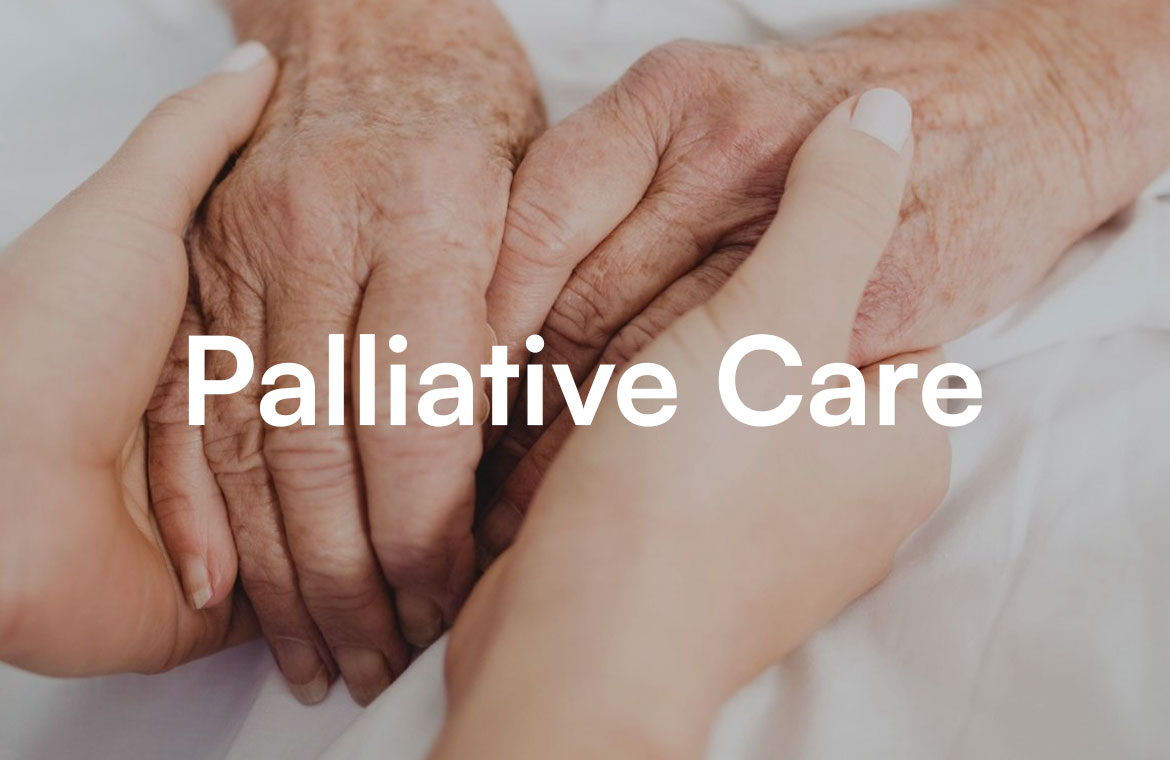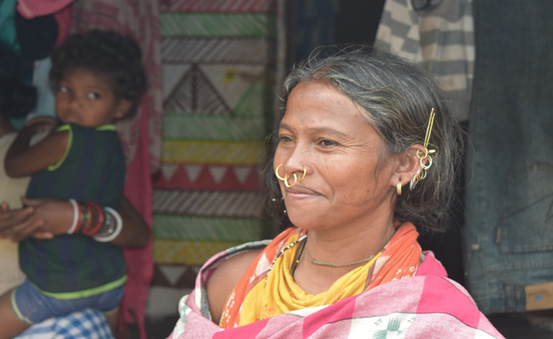
Out of India’s 461 scheduled tribes ,Orissa has designated 62 tribal communities and 13 primitive tribal groupings (PTG) . The Dongria Kondh, also known as the Dhongria, are an indigenous tribe inhabiting the Niyamgiri Hills in the Kalahandi and Rayagada districts of Odisha. To be a Dongria Kondh is to farm the hills’ fertile slopes, harvest their produce, and worship the mountain god Niyam Raja and the hills he presides over, including the 4,000 metre Mountain of the Law, Niyam Dongar (life-force, jela). The tribe has a strong tradition of shamanic practices, where shamans communicate with the spirit world to heal the sick, predict the future, and ensure the well-being of the community. Sacrifices are traditionally made after the harvest and before the planting of the new year’s crop, both in the villages and on the mountain tops. Previously humans were sacrificed but now with changing time, Chickens, goats, pigs and especially buffalo are sacrificed known as “Meria” Culture. The Dongria Kondh have no over-arching political or religious leader; clans and villages have their own leaders and individuals with specific ceremonial functions, including the beju and bejuni, male & female priests.
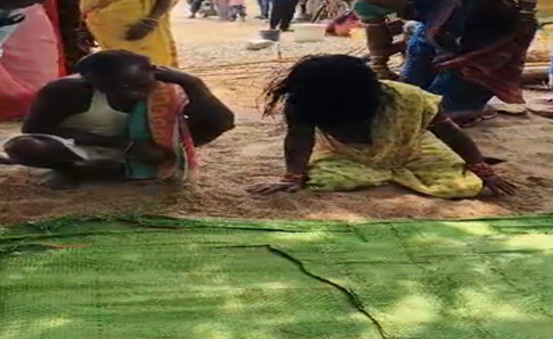
“DUMA OR MATA”
Many older adults believe that illness is caused by spiritual or supernatural forces known as “Duma” “Mata” rather than biological or environmental factors. Some older adults may believe that their health outcomes are predetermined, leading to a lack of engagement in health-promoting behaviors known as Fatalism. Older adults may prefer traditional healing practices, such as acupuncture, herbalism, or spiritual healing, over modern medical practices. Fears about hospitals, medical procedures, or modern medicine may cause older adults to avoid seeking necessary medical care. Common health issues among this group includes Arthritis, Cataract,Hypertension ,Obesity and all other Multimorbidity.
In Odisha, where the Dhongria tribal community resides, Tuberculosis is a significant health issue, with a high prevalence among the elderly population. “Immunosenescence” & Polypharmacy makes them more susceptible to TB. The presence of comorbidities, such as diabetes, hypertension, and chronic obstructive pulmonary disease (COPD) along with Poor nutrition and malnutrition along with women and child suffering from anemia further adds . Diagnosing and treating TB in the elderly can be challenging due to older adults may present with non-specific making diagnosis more difficult. A recent study have shown that TB prevalence among tribal populations is 432 per 100,000, compared to 296 in the general population. Additionally, a quarter of self-reported TB cases and 9% of all TB-notified patients are from tribal communities .According to a study published in the Indian Journal of Medical Research, malaria is a major public health problem in India, and tribal populations are disproportionately affected the study found that tribals, who comprise about 8% of India’s population, contribute 47% of total malaria cases, 70% of falciparum malaria cases, and 46% of malaria-related deaths in India. To address these issues, the Indian government has launched initiatives like the National Tuberculosis Elimination Program and the National Framework for Malaria Elimination.
During Covid-19 pandemic, the Dongaria tribals had also restricted themselves from testing for the disease. They tested Covid positive where a medical camp was set up at Parsali on the foot of Niyamgiri hills for their mass testing. However, not a single tribal turned up with their leader telling the state government officials that they don’t trust the medical system. A community leader, who heads the Niyamgiri Suraksha Manch, Sakaka Ulaka said there was no point in testing for a disease that does not exist. “Nothing will happen to us as we worship Niyam Raja,” said Ulaka.
The red mud has also leaked into the Vamsadhara river effecting the people of the area leading to water- Borne diseases. Women in the Dhongria tribe often have limited access to sanitary pads and other menstrual hygiene products, leading to the use of unhygienic alternatives like cloth, ash, or leaves with rising risk of RTI, UTI’s & risk of Cervical cancers. Not only this but they have a very strong affinity for local alcohol known as “Moula” & “Salapa rasa” made out of Rotten pineapples and smoke “PIKA” as well as smokeless tobacco making them addictive giving rise to Respiratory illness.
There’s a belief that snake venom can cause “bad blood,”,”snake stones to cure bites & certain snakes, like the cobra, possess magical powers, which can be transferred to humans through snake bites & perform spiritual healing rituals, including chanting, singing, and offerings to the gods, to cure snake bites. The nearest hospitals and health centres are often located far away from their villages, like “Kunakudu” and “Kambesh”, which are almost two hours from the main town. Half of the time, there is poor network connectivity and a language barrier (kui language), which makes it even more difficult to understand other people living in different towns.
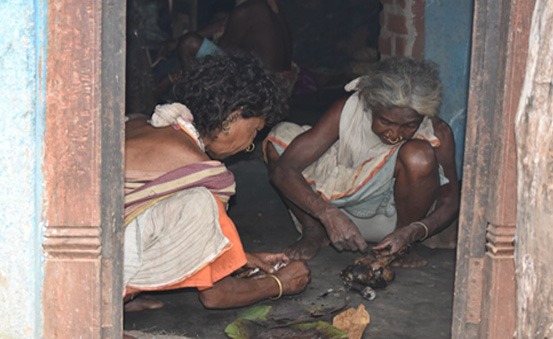
However I, was lucky to witness the Death ceremony of the village where the family of deceased person cooks Raw burnt meat and rice and serve to the area people. I was there for a study and my experiences has been quite unreal to write in words. They don’t believe that Death occurred due to any delay in diseases treatment but is the calling of God. Death seems to be not a surprising factor for them. The acceptance towards Cycle of Life of Dhongria Tribals are quite fascinating yet saddening. The Indian government, through initiatives like the National Health Mission ,tribal health programs along with some NGOs , has made some efforts to improve healthcare services in tribal areas. However, these efforts often need help in terms of execution. These initiatives have some positive impact, but their reach is still limited & being a budding public health specialist now it has become my goal to work for them .
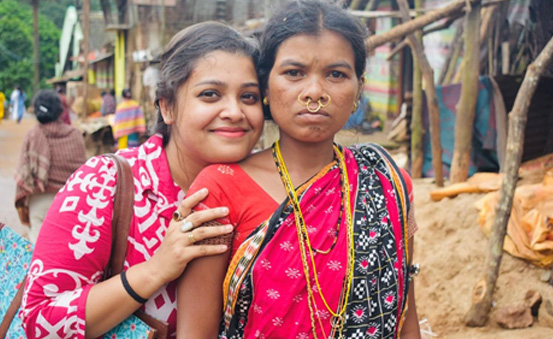
References:
- https://pmc.ncbi.nlm.nih.gov/articles/PMC8703289/
- https://tribalhealthreport.in/
- https://www.hindustantimes.com/india-news/odishas-dongaria-kondhs-reject-covid-tests-cases-rise-among-vulnerable-tribals-101621322233249-amp.html


